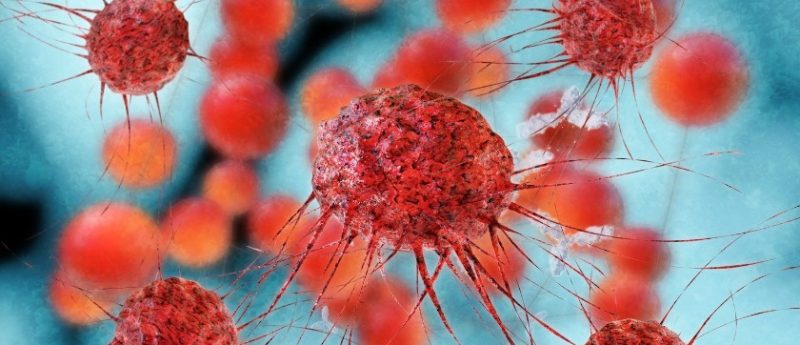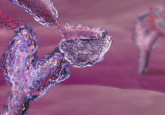Unique pancreatic cancer cell survival mechanism uncovered

Researchers from NYU Langone Medical Center (NY, USA), the Dana–Farber Cancer Institute (MA, USA) and the University of Michigan Medical School (MI, USA) have recently collaborated to investigate the mechanisms involved in pancreatic cancer cell survival in the dense tumor environment.
Their investigations, the findings of which were published recently in Nature, have uncovered a unique ability of pancreatic cancer cells to communicate with nearby stellate cells to encourage provisions of alanine, which they use as an alternate energy source when oxygen and glucose are scarce. These findings may provide new insight into designing effective therapies to prevent this cross-talk.
Pancreatic cancer cells have the ability to grow in low-nutrient tumor environments but the exact mechanisms by which they manage this remain undefined. This study is the first to reveal that pancreatic stellate cells respond to signals from the tumor cells and subsequently break down their own intracellular features into component parts – including amino acids – via autophagy, providing alanine as a source of energy.
Firstly the research team discovered that stellate cells secreted metabolites that led to a 20–40% increase in mitochondrial metabolism in the cancer cells. To further investigate which metabolite was increasing this metabolism within the cancer cells, the team analyzed approximately 200 metabolites and determined that only alanine significantly increased mitochondrial metabolism and tumor cell proliferation.
Furthermore, carbon-tagged alanine was used to investigate how the pancreatic cancer cells utilize the secreted alanine. The team were able to track its uptake into the mitochondria of pancreatic cancer cells and it subsequent involvement in the tricarboxylic acid cycle.
“Our study offers more proof that pancreatic cancers not only use fuel differently, but also scavenge for it far more effectively than many cancer types,” commented corresponding author Alec Kimmelman (NYU Langone Medical Center).
The team then aimed to identify the importance of this cross talk between cells. Using mice models of pancreatic cancer, they inhibited autophagy in the stellate cells and observed tumor growth largely come to a halt.
Previous studies have indicated that pancreatic cancer cells acquire nearby proteins via a process called macropinocytosis. Future studies aim to uncover if there is any association between macropinocytosis and autophagy, and future work could lead to the development of therapeutic inhibitors of these processes to prevent pancreatic cancer cell growth.




